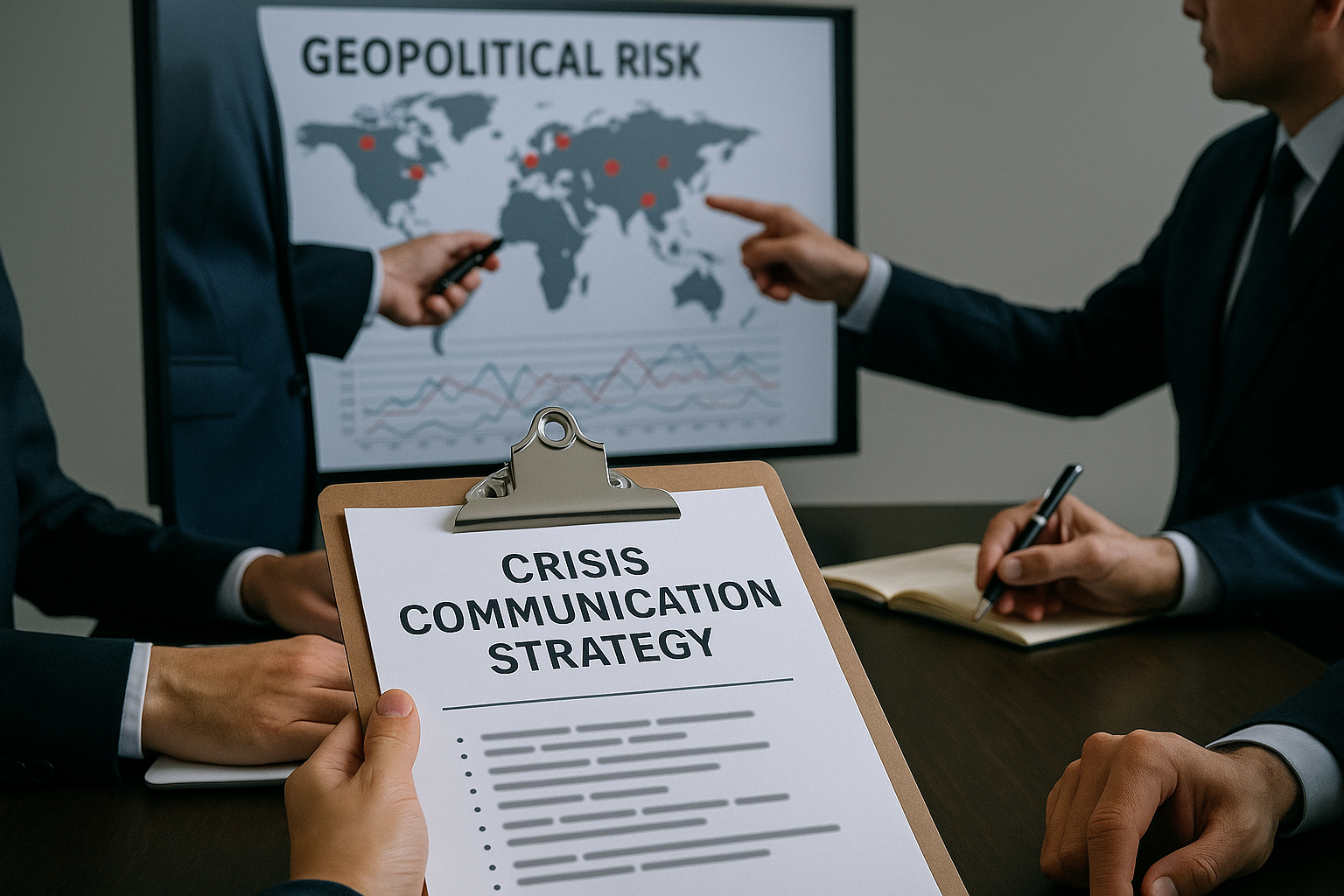Crisis-Ready: How manufacturers can lead with communication in times of global uncertainty

In today’s climate, unpredictability is the only sure thing. Just as manufacturers began to recover from the supply chain shocks of the pandemic, they now face a new wave of geopolitical uncertainty. From long running wars to trade shifts driven by elections and power struggles, the landscape is anything but stable. These pressures not only impact operations but also shape public perception.
The ongoing Iran–Israel–U.S. tensions have reminded us that the effects of global events don’t stop at borders. They hit production schedules, logistics, investor sentiment, and public confidence. Manufacturers can no longer afford to treat crisis communication as an afterthought. In times like these, how a company communicates is just as important as the actions it takes.
What happens when you are prepared vs when you are not
When the Middle East tensions escalated and global shipping routes came under threat, several Gulf-based multinationals acted fast. Their messaging was clear, timely, and focused on what mattered most – employee safety, operational continuity, and supply chain disruption. Coverage in the Financial Times showed the message landed with both impact and authority.
That kind of readiness doesn’t happen instantly; it’s the result of careful planning, scenario building, and message development, which are often done quietly behind the scenes with close coordination between internal communications and external PR teams.
In contrast, when Delta Air Lines faced a massive software outage in 2024, the delayed and unclear communication left customers confused and regulators concerned which lead to scrutiny, reputational damage, and a story that got told for them, not by them
That is the difference between reacting and responding.
Why PR matters more than ever
Crisis communication requires a distinct approach, and it needs to be in place before anything goes wrong. PR professionals bring a structured, experienced lens to uncertainty by setting up the right frameworks, tools, and habits so that when a crisis hits, your response is fast, consistent, and credible. Some PR strategies that can help manufacturers be better prepared for moments like these –
- Risk mapping & scenario planning: We work with internal teams to understand what could go wrong and explore how those situations might unfold from a communications perspective.
- Message development: We build adaptable core messaging pillars for different audiences – investors, customers, employees, and media.
- Consistent communication: We ensure all spokespeople convey the same messages to avoid confusion.
- Tone & timing framework: We help define how your brand should sound under pressure, whether it’s authoritative, empathetic or reassuring, and knowing when to speak versus when to hold.
- Stakeholder Engagement: Keep employees, customers, suppliers, and regulators informed to maintain trust.
Once the foundation is in place, we move to the tactical side of managing a live situation–
- Drafting press releases & holding statements for immediate use.
- Coaching spokespeople and preparing Q&A guidance for media and stakeholder calls.
- Monitoring media and social sentiment to flag misinformation or concerns early.
- Coordinating interviews with leadership to maintain transparency and authority.
- Advising on internal communications to ensure employees receive consistent updates.
- Conducting a post-crisis review to assess what worked, what didn’t, and how to improve future responses.
Finally
You may not be able to predict the next global flashpoint, but you can be prepared. Strategic PR provides companies with the tools to respond with calm, clarity, and control, even when the world around them is not. The key is to learn from past challenges and take proactive steps now, so you are not caught off guard later.
Please click here to find out more about BCM PR – Global Crisis Communications agency.